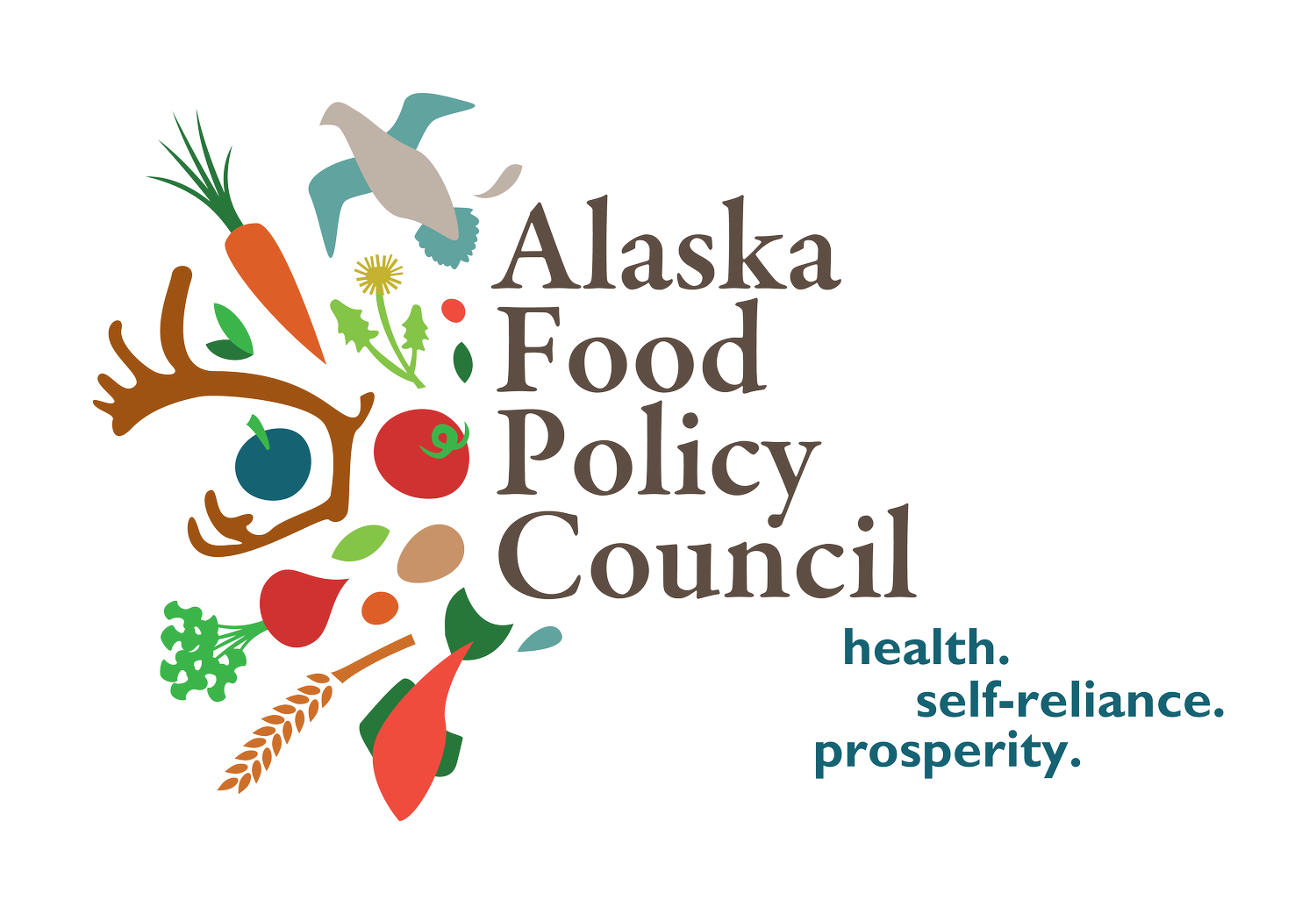Partners in Policy, Cultivating Collaboration
By Rachel Lord, Advocacy and Policy Director, AFPC
Last year, the Alaska Farm And Food Festival theme was “Better Together.” The Alaska Food Policy Council (AFPC) has embodied that spirit from its very beginnings, and we continue to celebrate and reach toward collaborative, reciprocal relationships across Alaska. We live in a big state that sometimes feels like a small town - we share relatives, friends, colleagues, and experiences that bring us together despite our physical distance. AFPC’s developing relationship with Kawerak’s Reindeer Herders Association is an excellent example of the energy and strength that can grow from collaboration.
Photo Credit: ResearchGate
A couple of years ago, our Executive Director Robbi met Nathan Baring at the Bagel Shop here in Homer. Nathan’s grandma is in Homer, and he travels here often to visit family. Robbi and Nathan struck up a conversation while waiting for bagels, and found shared connections in food systems - Nathan had recently started as the manager of Kawerak’s Reindeer Herders Association. Nathan was intrigued by some of AFPC’s projects and invited us to come to present at the RHA Annual Meeting in Nome in November last year (you can read about our amazing trip here).
With a better understanding of the Alaska Native reindeer industry on the Seward Peninsula, we reached out to the RHA as we were developing comments on the Bureau of Land Management’s draft Environmental Impact Statement (EIS) on the withdrawal of (d)(1) lands (learn more about the background here), opening them up to potential mining and development. With input from RHA, we stressed the importance of reindeer grazing areas on the Seward Peninsula and asked the BLM to add reference to this industry and land use in their Final EIS.
CLICK TO ENLARGE IMAGE
On Friday, June 28, the BLM released the Final (d)(1) Withdrawals EIS which selected the “No Action Alternative.” In response to our comments, the final document included language acknowledging the reindeer industry on the Seward Peninsula (you can read all of the responses to comments in this document from the BLM). The added section reads:
In addition to caribou, there are multiple domestic reindeer (Rangifer tarandus tarandus) herds on the Seward Peninsula. These reindeer were first imported to Alaska in 1892, but the number of herds declined in the 1990s, largely because an expanding Western Arctic herd wintered on reindeer ranges (Finstad et al. 2002). With the recent decline in the Western Arctic herd, reindeer numbers could expand. Successful reindeer husbandry requires access to seasonally important areas of the range and is limited by exposure to contaminants.
Our relationship with RHA continues to grow. In late June, I traveled to Anchorage to gather with Kawerak’s new ‘Program Advisory Council’ (PAC) to help advise the growth of RHA. Representing AFPC, I am honored to be sitting at the table as a “policy expert representative”. The group includes regional Elder and Youth representatives, industry experts, and agency representation.
The Vision of the RHA is “A sustainable reindeer economy for future generations” and their Mission is “To cultivate a collaborative environment while advocating for RHA members to thrive.”
As an advisory committee, this group is brought together to help strategize for a sustainable future by providing guidance to the program director. Last week was our first meeting, and it was a reflective time to consider organizational strengths and program needs, with the guiding question of “What are effective strategies for balancing staff longevity and sustainable growth in RHA?” I look forward to both learning and sharing knowledge that will both strengthen the Alaska Native reindeer industry through RHA and grow collaboration and partnership across Alaska’s food network. This is core to our work across all AFPC programs and projects - our vision is healthy, secure, abundant food systems that feed all Alaskans; we work towards that vision through connection, advocacy, and information.
From left to right: Karin Sonnen (Agency Representative: USDA State Rangeland Management Specialist), Bonnie Scheele (RHA Council Representative: RHA Herder and UAF High Latitude Range Management Program Manager), Nathan Baring (RHA Program Director, Kawerak, Inc.), Robert Sheldon (Regional Elder Representative, RHA Herder), Alexis Rexford (Regional Youth Representative, UAF Rural Development student and RHA Intern), Sierra Smith (RHA Staff, Kawerak, Inc.), Rachel Lord (Policy Expert Representative, AFPC), Rose Fosdick (Industry Expert Representative, former RHA Director). Not Pictured: Anhama Shannon (RHA Program Advocate, Kawerak, Inc.).
Living in Alaska, whenever you leave home it’s easy to bump into someone who is a friend of a friend, a distant cousin, a former co-worker, or classmate from somewhere across the state. This connection is a huge part of our strength, and our relationships are the foundation of improving food systems and reducing hunger for all Alaskans. Through our advocacy work, our conferences, our Regional Food Business Center - AFPC exists to make collaborative change through partnership and relationship. We invite you to join one of our working groups, reach out with questions and suggestions, let us know what resources you need and what you might have to offer!






